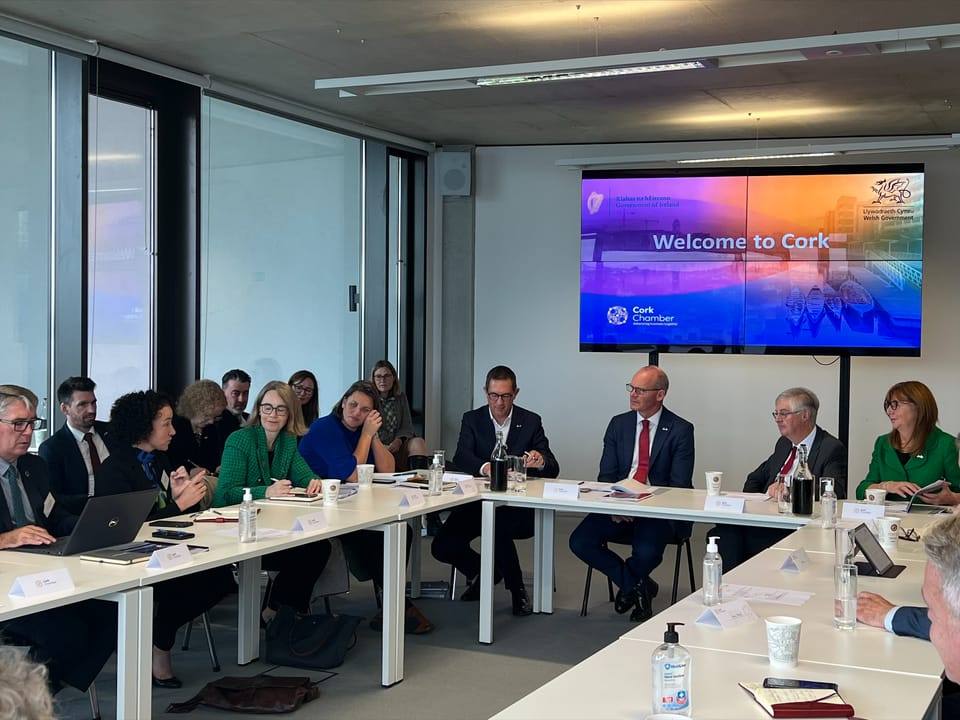In the energy transition, value creation isn't a zero-sum game.

Earlier this month, I joined my Renewable Energy sector colleauges in the MaREI Centre in Ringaskiddy for a roundtable discussion organised by Cork Chamber. We spoke with Minister Simon Coveney and Welsh First Minister Mark Drakeford about the opportunities for collaboration in the energy tranistion.
But hang on, what about Brexit? What about the fact that we share a sea which has the energy resources we need? Why should we countries be allies when we're competing for the same supply chain? Simply put, when it comes to creating the new world, we cannot think of value creation as a zero sum game. Either we all win or no-one does.
Zero-sum is a situation, often cited in game theory, in which one person's gain is equivalent to another's loss, so the net change in wealth or benefit is zero. A zero-sum game may have as few as two players or as many as millions of participants. For example, if I bet Dean a fiver that Ireland will win against New Zealand in New Zealand at rugby this summer past, then that bet is zero-sum. I'm up and he's down and since it is a rare occurence, I'll reference it whenever I can!
Meanwhile, value creation is the process of turning labor and resources into something that meets the needs of others. Building a power plant and burning coal meets the needs of our society to light and warm our homes, but with the embedded costs of carbon emissions.
When it comes to the energy transition, countries can create value from their natural resources, both Ireland and Wales can develop offshore windfarms to meet the energy needs of both countries. As the source of the energy is infinite, there is enough for both countries to thrive. This in turn means we can support each others economy by providing redundancy in the supply chain; instead of having two completely independent sets of services, we can collaborate to create complementary ones. We don't both need to figure out how to meet the skills gap independently, we can save time by knowledge sharing.
Another example of how creating the new energy future throws up suprising co-benefits.
